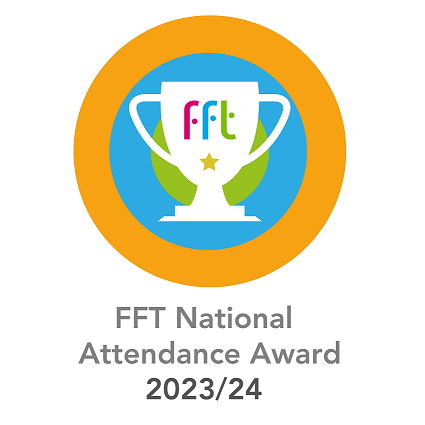Every School/College has a Governing Body which could consist of between 9 and 21 people depending on the size of the College.
St Anselm’s College has 14 Governors made up as follows:-
• 9 Foundation Governors
• 1 Local Authority Governor
• The Headteacher
• 1 Parent Governor
• 2 Associate Governors
The term of office of a Governor is usually four years, but Governors can resign earlier if necessary. It is estimated, that it can take a couple of years to fully get to know the job and therefore, Governors are encouraged to carry on for a further term of office if circumstances allow, although Parent Governors must be re-elected by parents of students at the College.
The Headteacher is an ex officio Governor. Parent Governors are elected by other parents, Staff Governors are elected by their colleagues and Foundation Governors are appointed by, Trustees of the Congregation of The Christian Brothers as business representatives, or because of particular skills they can bring to the Governing Body.
As an Academy, being appointed as a Governor, also means you become a Trustee and a Company Director. (Please see links to ‘General Duties of Directors’ and ‘The Essential Trustee’ below).
Why do Colleges need Governors?
Every school/College has a Governing Body to represent the public in the running of schools. The Governing Body supports the Headteacher and staff and is accountable to its stakeholders for the College’s overall performance and for decisions it has made.
The Governing Body has a strategic role to promote high standards of educational achievement, ensuring that adequate plans are made and legal obligations are met. Governors will contribute to the strategic discussions at Governing Body meetings which determine:-
• The vision and ethos of the College
• Clear and ambitious strategic priorities and targets for the school
• That all children, including those with special educational needs, have access to a broad and balanced curriculum
• The College’s budget, including expenditure of the pupil premium allocation, determining the staff complement and making decisions on staff pay
• The College’s staffing structure and key staffing policies
• The principles to be used by College leaders to set other College policies
And
• Will ensure the College and staff have sufficient resources and support required to do their jobs well, including external advice where necessary and suitable premises and that the way in which resources are used has impact
The Governing Body will be involved in the appointment of the Headteacher and Deputy Headteacher and determine how the appointment of other staff will be managed. It establishes procedures for management of staff conduct, discipline and staff grievances. It annually reviews the College’s Performance Management Policy for staff appraisal.
The Governing Body will hold senior leaders to account by monitoring the College’s performance, this includes:-
• Agreeing the outcomes from the College’s self-evaluation and ensuring they are used to inform the priorities in the College Improvement Plan
• Considering all relevant data and feedback provided on request by College leaders and external sources on all aspects of performance
• Asking challenging questions of College leaders
• Ensuring senior leaders have arranged for the required audits to be carried out and receiving the results of those audits
• Ensuring senior leaders have developed the required policies and procedures and the school is operating effectively according to those policies
• Acting as a Link Governor on a specific issue, making relevant enquiries of the relevant staff and reporting to the Governing Body on the progress of the relevant College priority
• Listening to and reporting to the College’s stakeholders i.e. students, parents, staff and the wider community, including local employers.
The Governing Body provides a sense of direction for the work of the College, Governors work together with the Headteacher as a team and support the work of the College as a critical friend; to hold the College to account for the standards and quality of education it achieves.
A good Governing Body will therefore:-
• take a strategic view
• be a ‘critical friend’
• ensure accountability
Do school Governors need qualifications?
Schools need volunteers (whether parents or not) with experience of life, but some Governors may have qualifications/professional skills. Governors do not have to be educational experts, and are here to provide an independent view and common sense approach. Governors bring a range of experience and interests from many walks of life.
What you do need is: enthusiasm; energy; time; a willingness to be open to new ideas and attend basic training; along with good communication/interpersonal skills.
Being a Governor involves being committed and giving significant amounts of time and energy. There are also additional duties to have regard to under the Companies Act and the Charity Act. Careful consideration of these commitments should be made when agreeing to serve on the Governing Body. (See Below)
How much time does a school Governor have to give?
This depends on what you are able to offer. You will need time to attend at least one Full Governing Body meeting per term, this is a statutory requirement.
Most Governing Bodies have a number of Committees. This is the case here at St Anselm’s. Governing Body obligations may have been delegated to Committees as appropriate. These Committees are usually made up of perhaps 3–5 members to look at specific areas of work, e.g. Finance & Resources, Curriculum or Staffing. The Committees make decisions on behalf of the Governing Body, or recommendations depending on its Terms of Reference. Most of the statutory termly meetings are held during the evening, but committees may meet in the day or evening.
As you gain confidence in your role as a Governor/Director/Trustee, it will be anticipated that you will want to join at least one Committee. Committees usually meet once or twice a term. You may be asked to serve on panels of Governors to appoint or appraise the Headteacher, set the Headteacher’s pay and agree the pay recommendations for other staff. You may also be expected to deal with matters regarding students or staff e.g. student exclusions or staff grievances or
disciplinary matters.
As an Academy, St Anselm’s College Governing Body must work within its Articles of Association. The College and Governors are also subject to duties and responsibilities as laid out in the Companies Act and the Charity Act.
As a Governor, upon your appointment, you will also become a Director and will be registered as such against the Academy at Companies House. You must therefore ensure that there is no reason why you may not become a Director when considering applying for a Governor vacancy. You will also be appointed as a Trustee under the Charity Act involving regulations and monitoring by the Charities Commission e.g. ensuring duties regarding the spending of public monies by the school are in accordance with all rules, regulations and guidance. (Details of general duties are set out in the two documents entitled ‘General Duties of Directors’ and ‘The Essential Trustee’, However, please do not be put off by these duties. Upon appointment you will receive a Governors’ Handbook and other information to assist you in your
role. During your term of office there will also be regular in-house training sessions and training available from outside providers that you will be able to attend. Governors are encouraged to challenge or question any aspect they are unsure of during training, meetings, or upon receipt of information and the Clerk to Governors, the Chair of Governors or the Headteacher are always available to answer or clarify any question you may have.
So, in a nutshell, what does a Governing Body do?
The Governing Body has a responsibility to:-
• promote and maintain high standards of educational attainment;
• agree the College Improvement Plan;
• set an annual budget detailing planned spending;
• approve a staffing structure;
• make sure that the curriculum is balanced and broadly based and report on students’ achievement and examination results.
• draw up an action plan following an Ofsted (Office for Standards in Education) report;
• produce policies on a number of issues including Sex Education, S.E.N;
• appoint staff, ensuring the implementation of a range of personnel procedures;
• secure high levels of attendance and good standards of student behaviour;
• ensure the safeguarding and health & safety of students and staff;
• develop the strategic plan for the College, acting as a critical friend and ensuring accountability;
• deal with complaints against the College
Basically, Governors oversee the work of the College and make sure it provides a good quality education for its students.









